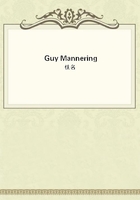
第90章
Glossin, while he repined internally at what he would fain have called the prejudices and prepossessions of the country, was too wise to make any open complaint, He was sensible his elevation was too recent to be immediately forgotten, and the means by which he had attained it too odious to be soon forgiven. But time, thought he, diminishes wonder and palliates misconduct. With the dexterity, therefore, of one who made his fortune by studying the weak points of human nature, he determined to lie by for opportunities to make himself useful even to those who most disliked him; trusting that his own abilities, the disposition of country gentlemen to get into quarrels, when a lawyer's advice becomes precious, and a thousand other contingencies, of which, with patience and address, he doubted not to be able to avail himself, would soon place him in a more important and respectable light to his neighbours, and perhaps raise him to the eminence sometimes attained by a shrewd, worldly, bustling man of business, when, settled among a generation of country gentlemen, he becomes, in Burns's language, The tongue of the trump to them a'. [*The tongue of the trump is the wire of the Jew's harp, that which gives sound to the whole instrument.] The attack on Colonel Mannering's house, followed by the accident of Hazlewood's wound, appeared to Glossin a proper opportunity to impress upon the country at large the service which could he rendered by an active magistrate (for he had been in the commission for some time), well acquainted with the law, and no less so with the haunts and habits of the illicit traders. He had acquired the latter kind of experience by a former close alliance with some of the most desperate smugglers, in consequence of which he had occasionally acted, sometimes as partner, sometimes as legal adviser, with these persons. But the connection had been dropped many years; nor, considering how short the race of eminent characters of this description, and the frequent circumstances which occur to make them retire from particular scenes of action, had he the least reason to think that his present researches could possibly compromise any old friend who might possess means of retaliation. The having been concerned in these practices abstractedly, was a circumstance which, according to his opinion, ought in no respect to interfere with his now using his experience in behalf of the public, or rather to further his own private views. To acquire the good opinion and countenance of Colonel Mannering would be no small object to a gentleman who was much disposed to escape from Coventry; and to gain the favour of old Hazlewood, who was a leading man in the county, was of more importance still. Lastly, if he should succeed in discovering, apprehending, and convicting the culprits, he would have the satisfaction of mortifying, and in some degree disparaging, Mac-Morlan, to whom, as Sheriff-substitute of the county, this sort of investigation properly belonged, and who would certainly suffer in public opinion should the voluntary exertions of Glossin be more successful than his own.
Actuated by motives so stimulating, and well acquainted with the lower retainers of the law, Glossin set every spring in motion to detect and apprehend, if possible, some of the gang who had attacked Woodbourne, and more particularly the individual who had wounded Charles Hazlewood. He promised high rewards, he suggested various schemes, and used his personal interest among his old acquaintances who favoured the trade, urging that they had better make sacrifice of an understrapper or two than incur the odium of having favoured such atrocious proceedings. But for some time all these exertions were in vain. The common people of the country either favoured or feared the smugglers too much to afford any evidence against them. At length, this busy magistrate obtained information, that a man, having the dress and appearance of the person who had wounded Hazlewood, had lodged on the evening before the rencontre at the Gordon Arms in Kippletringan. Thither Mr.
Glossin immediately went, for the purpose of interrogating our old acquaintance, Mrs. Mac-Candlish.
The reader may remember that Mr. Glossin did not, according to this good woman's phrase, stand high in her books. She therefore attended his summons to the parlour slowly and reluctantly, and, on entering the room, paid her respects in the coldest possible manner. The dialogue then proceeded as follows:-"A fine frosty morning, Mrs. Mac-Candlish.""Ay, sir; the morning's weel eneugh," answered the landlady dryly.
"Mrs. Mac-Candlish, I wish to know if the justices are to dine here as usual after the business of the court on Tuesday?""I believe--fancy sae, sir--as usual"--(about to leave the room).
"Stay a moment, Mrs. Mac-Candlish--why, you are in a prodigious hurry, my good friend!--I have been thinking a club dining here once a month would be a very pleasant thing.""Certainly, sir; a club of respectable gentlemen.""True, true," said Glossin, "I mean landed proprietors and gentlemen of weight in the county; and I should like to set such a thing a-going."The short dry cough with which Mrs. Mac-Candlish received this proposal, by no means indicated any dislike to the overture abstractedly considered, but inferred much doubt how far it would succeed under the auspices of the gentleman by whom it was proposed. It was not a cough negative, but a cough dubious, and as such Glossin felt it; but it was not his cue to take offence.
"Have there been brisk doings on the road, Mrs. Mac-Candlish?
plenty of company, I suppose?"